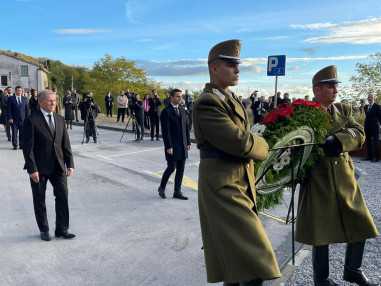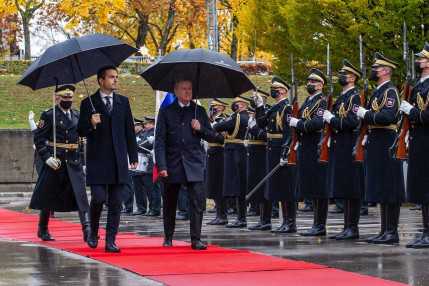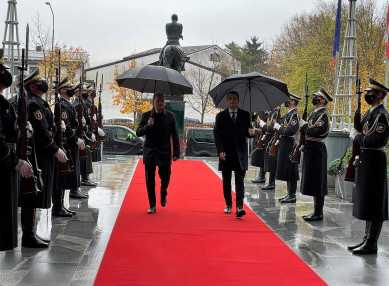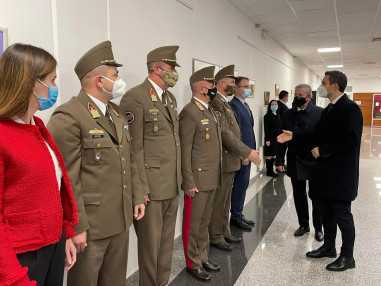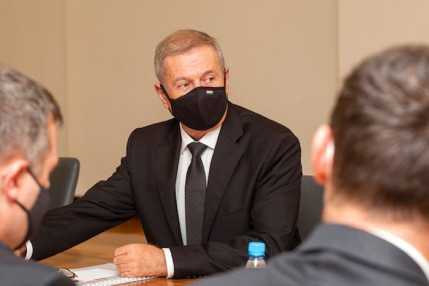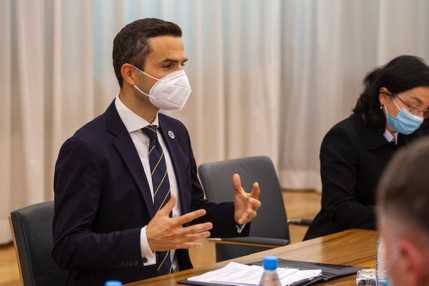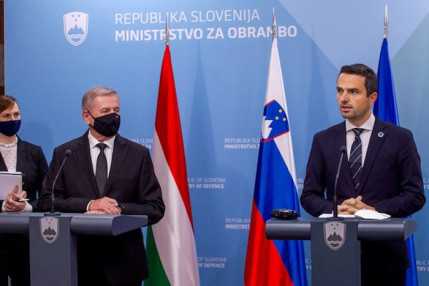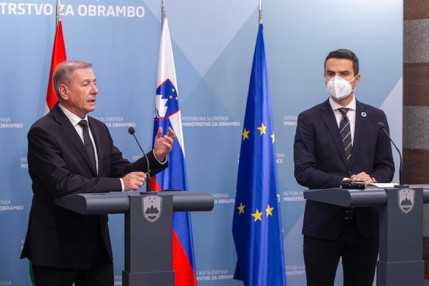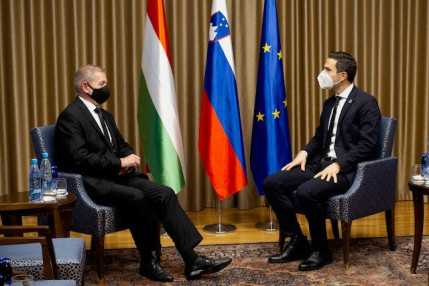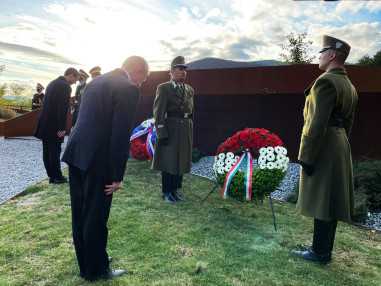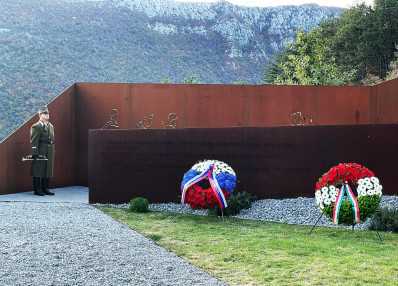Defence Minister Tibor Benkő discusses regional security with his Slovenian counterpart
Text: Ministry of Defence | 13:44 November 3, 2021Hungarian Defence Minister Tibor Benkő and Slovenian Defence Minister Matej Tonin held a discussion in Ljubljana on Tuesday, 2 November.
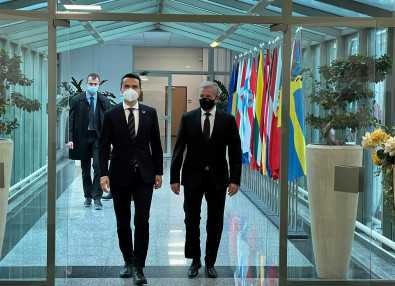
Speaking about the meeting, Defence Minister Tibor Benkő said that Slovenia continues to be a strategic partner for Hungary in the field of defence cooperation. The goal is to take this partnership to the next level in the fields of regional and bilateral cooperation. The Hungarian minister emphasized that Slovenia is a distinguished partner for Hungary and for the Visegrád Group, too. Both countries have a mutual interest in cooperation in key issues such as collaboration in COVID-19 tasks, migration, support to the Western Balkans or the infrastructural development of the region.
The Hungarian minister of defence pointed out that Hungary took over the presidency of the Visegrád Group concurrently with Slovenia’s taking over the EU presidency, and cooperation between these two presidencies is a priority goal. In this context, the display of Central European visions for the future of Europe is especially important. In the field of representing our interests in the field of common security and defence policy, the soonest possible enlargement of the European Union and the EU and NATO integration of Western Balkan countries continue to be joint strategic interests for Hungary and Slovenia. “Like Hungary, Slovenia considers it very important to fulfil NATO commitments and conduct allied cooperation in addressing security challenges; at the same time, both countries attach great significance to the forms of regional cooperation strengthening the EU and NATO”, emphasized the minister of defence.
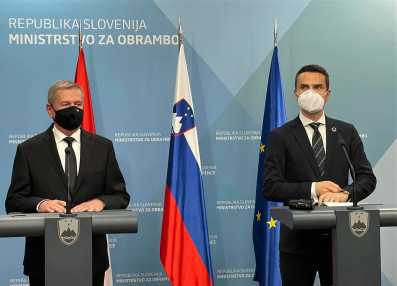
Speaking about the forms of regional cooperation, Tibor Benkő said that the main reason for setting up the Headquarters Multinational Division-Centre (HQ MND-C) had been to increase Central Europe’s security by strengthening cooperation among the armed forces of allies in the region. He added that the HQ MND-C currently has three framework nations, namely Croatia, Hungary and Slovakia, and another five contributing countries.
During the discussions, the Slovenian minister of defence noted that as a result of recent coordination, his country has decided to declare personnel for the headquarters.
Further topics of the plenary meeting included the development and modernization of armed forces. Speaking about this topic, Tibor Benkő said that Hungary continues to be committed to guaranteeing Euro-Atlantic security and fair burden-sharing, and that it intends to contribute to preserving peace and strengthening stability in Europe through the implementation of the National Defence and Armed Forces Development Program. The minister noted that the increase of Hungary’s defence spending is in accordance with the commitment made at the 2014 Wales NATO Summit, and the development plans also harmonize with the capability goals set by NATO, so the Alliance, too, spoke highly of this process. “First and foremost, these results implement national goals, and at the same time strengthen NATO’s capabilities”, the minister of defence pointed out. In his briefing on the National Defence and Armed Forces Development Program, Tibor Benkő said that the most important areas of development in the program cover the Hungarian Defence Forces as a whole.
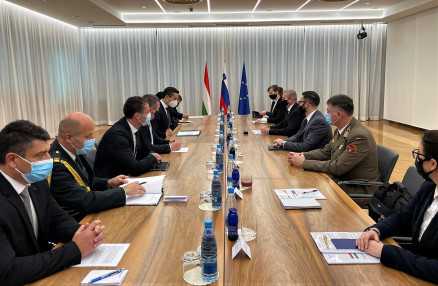
These areas include the development of the land forces, the air force, the command and control (C2) capability, the logistic and support as well as the volunteer reservist capability, but great emphasis is laid also on expanding the military career model and reaching out to young people. Besides, the implementation of the plan also contributes to the revival of Hungarian defence industry.
Slovenian Defence Minister Matej Tonin said that similarly to the development of the Hungarian armed forces, development projects have recently been launched in several fields of the Slovenian military as well.
The ministers agreed that the main pillars of armed forces development are political support, the plannable availability of resources and the existence of prepared, educated and well-trained soldiers.
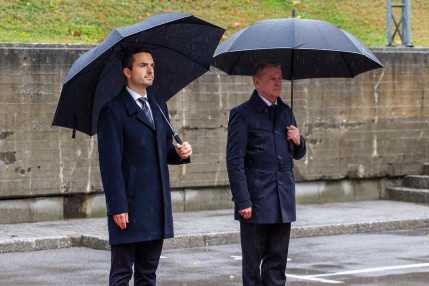
Following the discussions, the ministers jointly unveiled the WWI Hungarian central monument in Slovenia. Tibor Benkő said that it had been a great pleasure for him to see his Slovenian counterpart honoring the event with his presence, and to be able to jointly represent the cause of historical commemoration. The minister pointed out that the Nova Gorica monument is a worthy memorial for those tens of thousands of Hungarian troops who had been killed in action on the Isonzo front. He also underlined that the remembrance of soldier heroes is an important task of posterity, since it enables us to express our belongingness and unity and strengthen our collective identity.
Galéria
